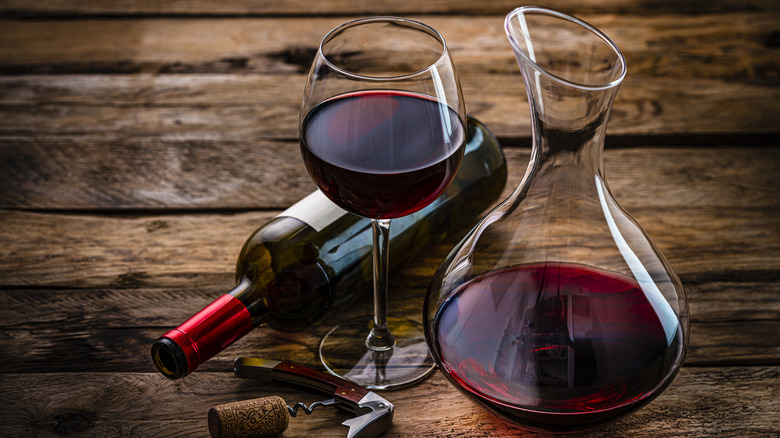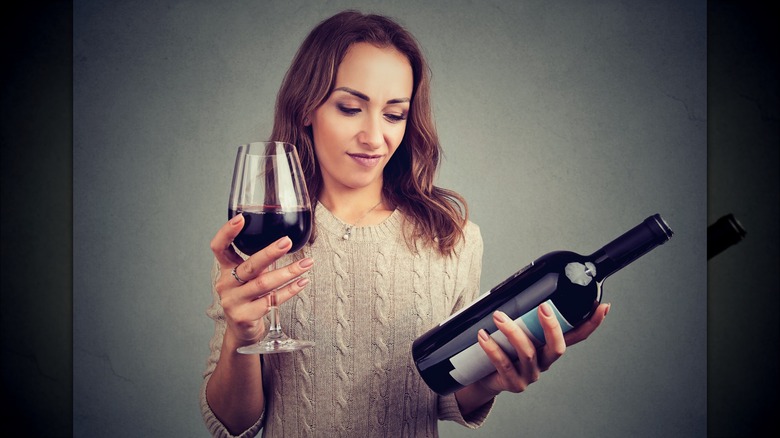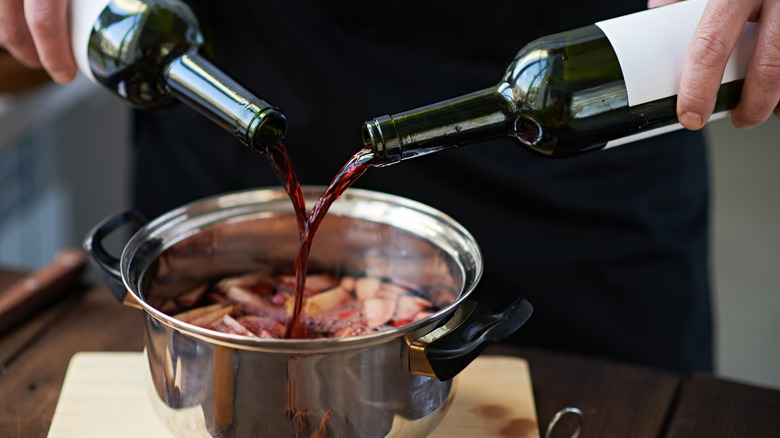What Happens If You Drink Old Opened Wine (And Is It Even Safe)?
It happens to the best of us. You host a dinner party and splurge on wines to impress everyone at the table, and inevitably, some of that wine goes unfinished. Considering the high price and quality taste, it would be a shame to let the rest of your bottle go to waste. After the night is over and your guests have gone home, you're left wondering whether it's all right to save the wine for later and if it will be safe to drink.
Fortunately, you can rest easy. Old unopened wine is perfectly safe to drink. So go ahead and put that leftover wine in the fridge (chilled wine is great for summer, after all). However, there's a catch: While leftover wine may be drinkable, it still goes bad. Over time, that old wine will start to turn into vinegar, which is far from pleasant to imbibe. The minute a wine bottle is opened, its flavor starts to change, and even if it's properly resealed afterwards, it will ultimately, inevitably become unpalatable after its viability has run its course. With that in mind, knowing how long the type of wine you're about to open lasts could make the difference with your leftover alcohol, including whether it's a good idea to drink.
Why does old opened wine go bad?
When wine is exposed to air, it oxidizes. A little oxidation isn't a bad thing, per se. Most wines are bottled with cork before sealed and shipped to retailers; because cork is porous, it allows just a sliver of air to pass through it and into the bottle, which slowly ages the wine. However, when fully exposed to the air, the wine will begin to oxidize into vinegar. While technically drinkable, vinegar is highly acidic, meaning consuming it in high quantities can have some undesirable side effects, like damaged tooth enamel and nausea –and the same goes for oxidized wine.
Of course, this process isn't instantaneous. Once opened, and if stored correctly, wine — mainly most of the reds, whites, and rosés you can buy at your local store – lasts between three to five days on average. Any later than that and you'll be left with bad wine. (However, there are exceptions, as sparkling wine only lasts for one to two days, while fortified wine lasts for multiple weeks due to the inclusion of brandy or another similar spirit during the fermentation process). Fortunately, old wine has other uses in the kitchen even after it's worth as drinking wine has degraded.
What to do with old opened wine
Once your wine has become less-than-optimal for drinking but hasn't yet gone bad, consider using it for cooking. Freezing is a great option for preserving leftover wine as a recipe ingredient. That being said, this method is suboptimal for drinking, as freezing wine separates compounds within it. These compounds have to be reintegrated through heating, which can damage the flavor of drinking wine. But for cooking, which often requires heating, frozen wine works just fine.
There are many ways wines can be used in cooking. High-quality red wine like merlot works great for cooking homemade pan sauces. It also makes for great marinades by tenderizing meat and preserving its moisture, and you can add some great flavor to fish by cooking it in wine as well. Though keep in mind that cooking food in wine mainly adds flavor, meaning using too little leaves your dish unchanged, while adding too much can overpower a dish. So the next time you have leftover wine, remember not to throw it out just yet.


